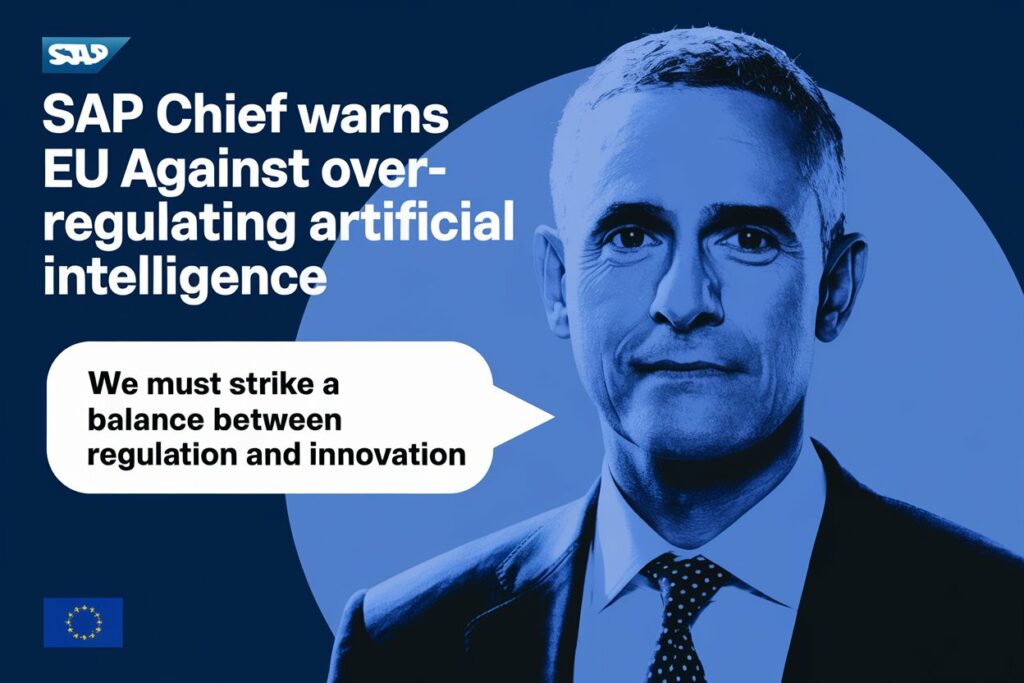
Prince Thakur
6 months ago
SAP Chief warns EU against over-regulating Artificial Intelligence
The chief executive of SAP, Europe’s largest software firm, has cautioned EU policymakers against over-regulating artificial intelligence and widening the already large gap with the US in the transformative yet nascent sector. “I’m totally against regulating the technology, it would harm the competitiveness of Europe a lot if I can better test my AI models here,” Christian Klein told the Financial Times during a visit to Silicon Valley. “If we over-regulate using data for developing new AI in Europe, but [in the US] it is still OK, then you’re at a massive disadvantage.”

The SAP boss’s intervention comes as the enterprise software sector is being upended. Rivals such as Salesforce and Oracle are racing to infuse generative AI through their services via chatbots or agents that can understand and act on natural language queries and commands. But tech companies have bridled at restrictions in the EU’s new Artificial Intelligence Act, which seeks to regulate the most powerful large language models, and the Digital Markets Act and data protection rules, which restricts what data can be used to train LLMs. Meta and Apple have declined to launch some AI products from the region as a result. Meanwhile, on Sunday, California governor Gavin Newsom vetoed a controversial bill designed to regulate the most powerful AI models built in the state, under heavy pressure from tech groups. Recommended The Big Read Europe’s rushed attempt to set the rules for AI “I’m super close to all the discussions in Europe and as the biggest software company we have a certain voice in that,” said Klein. “I think the right discussion is happening in Europe right now: how can we regulate the impact on businesses, on end users? Don’t regulate the technology. Regulate the outcome.” The German company is investing €2bn a year in AI, a tiny fraction of the $100bn Big Tech titans have spent this year. But Klein said SAP is not trying to compete with the US hyperscalers and has no need for vast data centres or frontier AI model research. “While others are screening the whole internet with their large language models, ask them about some facts about your company on business data, the results will not be that good,” he said. His modest budget is being used to develop its “Joule” chatbot, which Klein said can perform a variety of tasks from writing code to acting as an internal consultant to identify supply chain and business process inefficiencies and suggest improvements. SAP also wants to attract more US engineering talent by opening labs near universities such as UCLA, Berkeley and Stanford. It has also directly invested in generative AI start-ups Anthropic and Cohere. The AI pivot is the latest reinvention of the 51-year-old company. Over the past decade, it repositioned itself from a mainframe-based, per-head licensing service to one that sells customers subscriptions to its interconnected cloud-based apps for overseeing everything from accounting to supply chains and HR. Read More